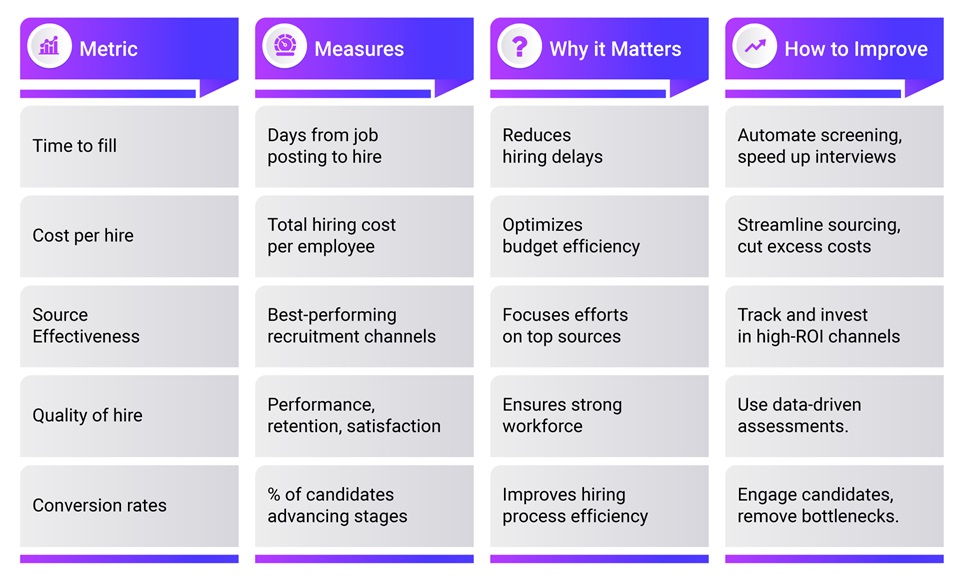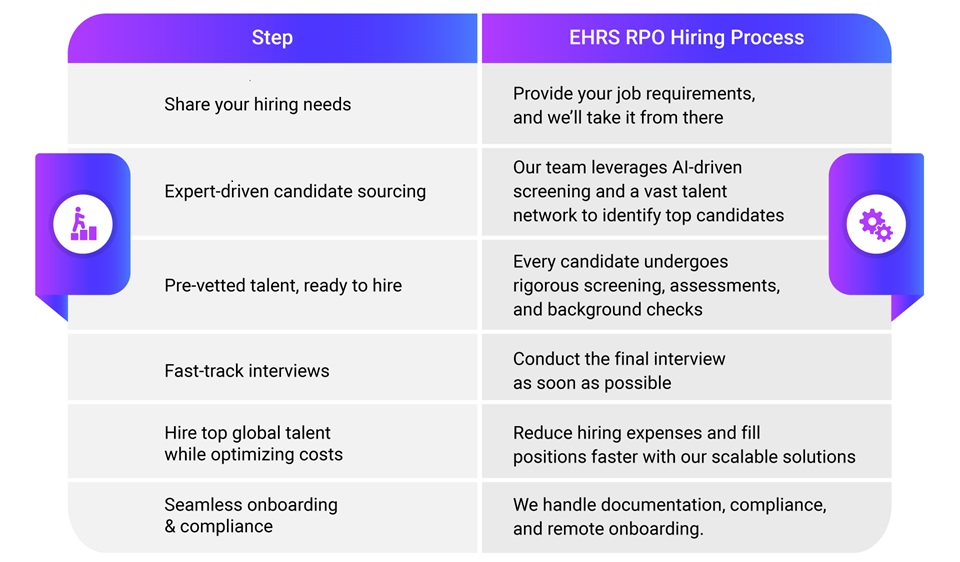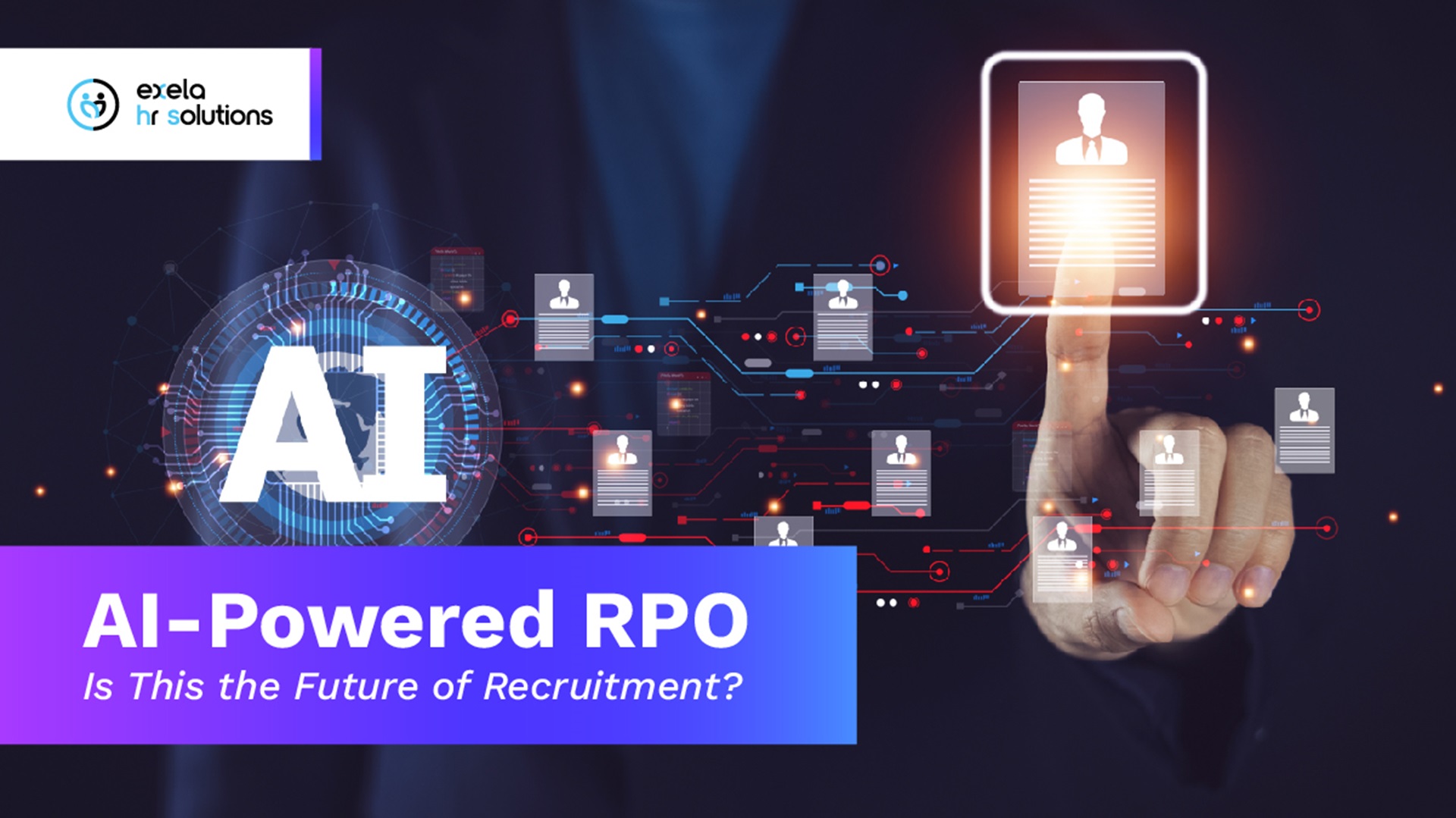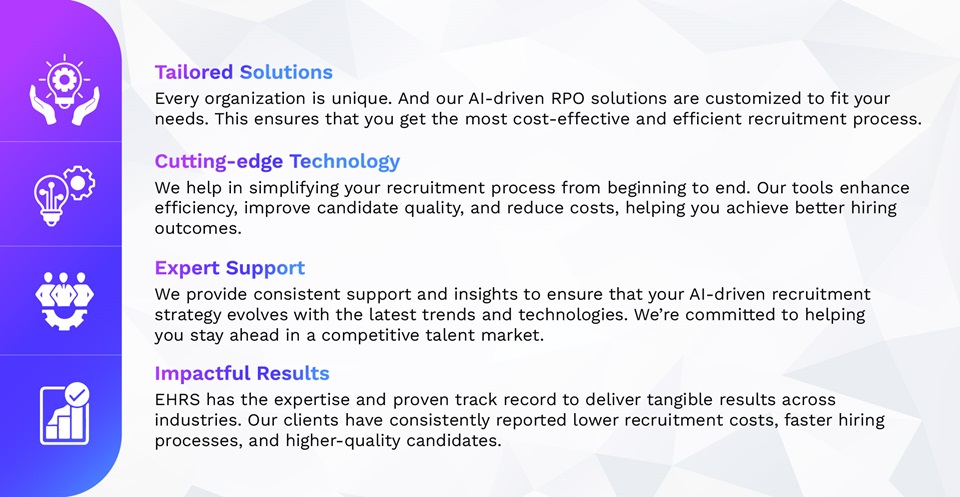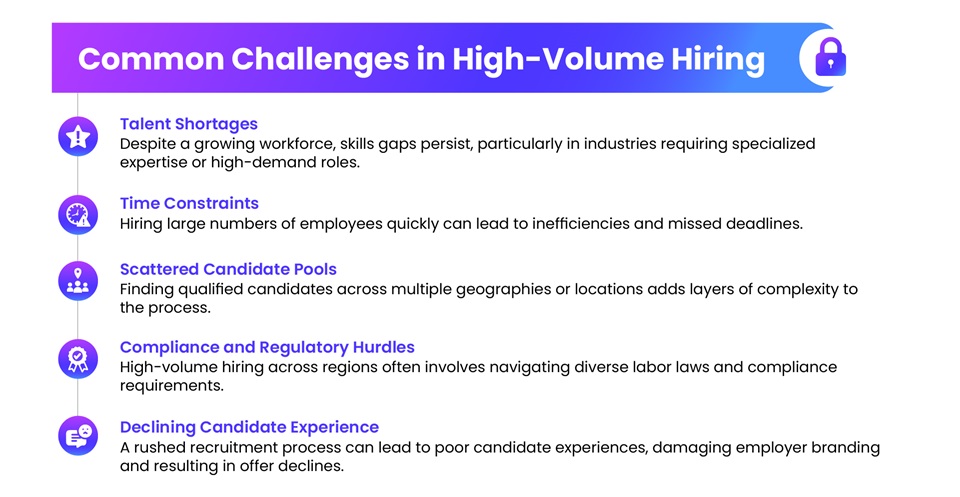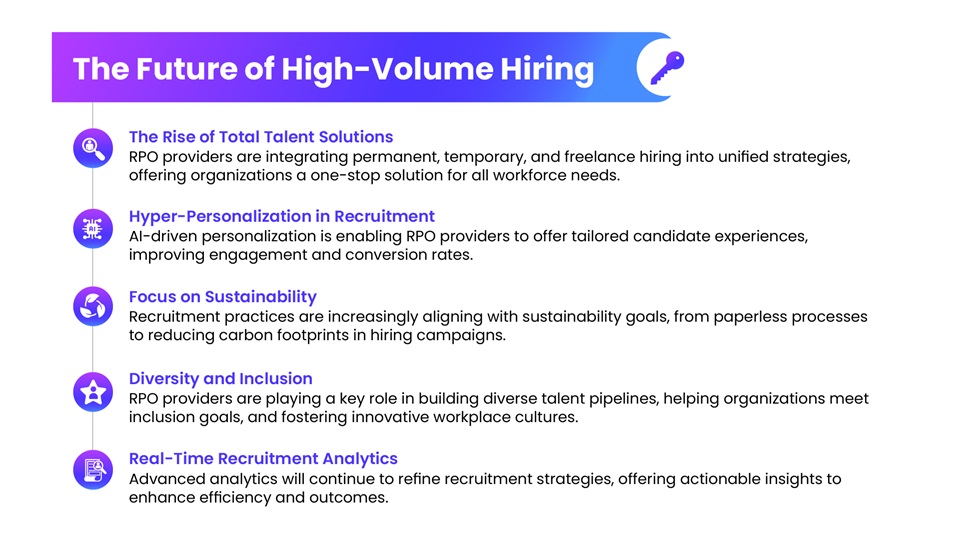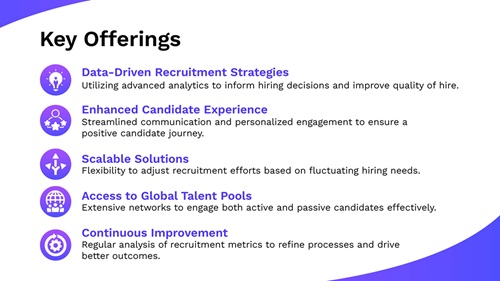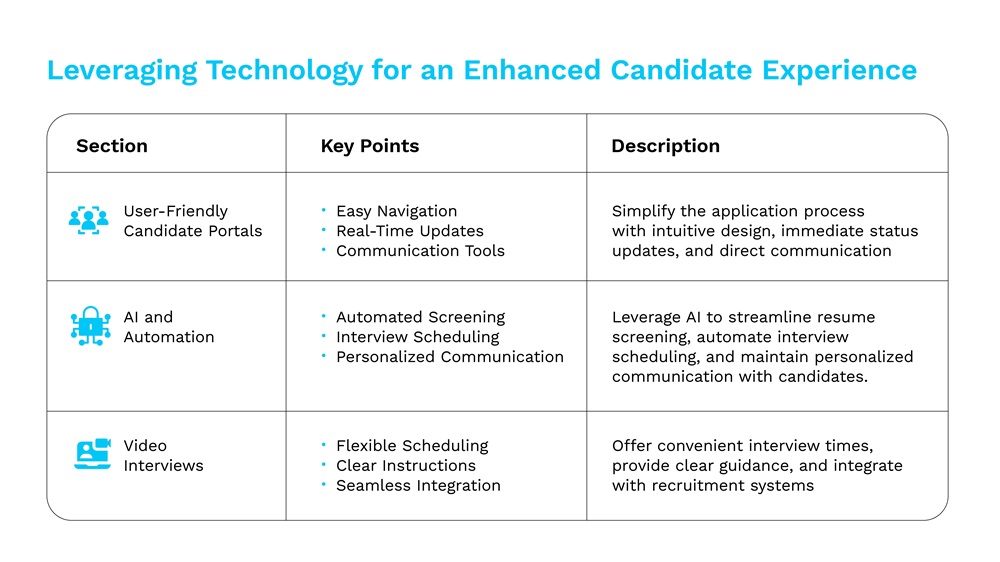Offshore Recruitment Services vs RPO: What’s Best for Your Talent Strategy?


Recruiting the right talent today isn’t just a challenge—it’s a full-on business risk. Whether you’re a tech startup racing to fill engineering roles or a national retailer gearing up for seasonal demand, the pressure to hire fast, smart, and affordably has never been greater. With unemployment rates fluctuating, skills gaps widening, and candidate expectations rising, the traditional ways of hiring simply aren’t cutting it anymore.
That’s why many companies—big and small—are turning to outsourcing to stay competitive. But here’s the catch: outsourcing isn’t a one-size-fits-all solution. Two models have emerged as front-runners in the talent acquisition space: Offshore Recruitment Services (ORS) and Recruitment Process Outsourcing (RPO). While both aim to ease the burden on internal HR and recruitment teams, they work in very different ways and offer unique benefits depending on your needs.
This blog is your guide to understanding the key differences between ORS and RPO, clearing up common misconceptions, and helping you figure out which one makes the most sense for your business.
Ready to find your perfect recruitment match?
What Is RPO (Recruitment Process Outsourcing)?
Recruitment Process Outsourcing (RPO) is more than just handing off a few hiring tasks. It’s about bringing in a partner to reshape how you hire from the ground up. When you engage an RPO provider, they take over either the full recruitment cycle or specific parts of it, such as sourcing, interviewing, onboarding, or even employer branding. The real power of RPO lies in its strategic scope. In many cases, they embed recruiters directly within your team, working alongside your HR staff to create a seamless hiring experience, bringing data-driven insights, building candidate pipelines, improving your employer value proposition, and ensuring diversity, equity, and inclusion (DEI) goals are met.
What does that mean in practice?
Must read: The 2025 Guide to RPO for High-Volume Hiring: Overcoming Bottlenecks
Imagine you’re expanding into three new markets across the U.S., and each one requires different skill sets and hiring timelines. An RPO partner can handle this complexity, tailoring your hiring approach based on geography, talent trends, and your business goals. They’ll analyze what’s working (and what’s not), suggest improvements, and continuously optimize the process.

Think of RPO as bringing in a specialist to not just help hire talent but transform your entire recruitment strategy.
What Are Offshore Recruitment Services (ORS)?
Now let’s talk about Offshore Recruitment Services, which is a much more targeted model. Instead of overhauling your entire recruitment function, ORS enables you to outsource specific, time-consuming tasks usually to recruiting teams based in countries like India or the Philippines.
These teams specialize in high-volume resume sourcing, screening, and candidate outreach and typically work in your time zone to ensure smooth collaboration.
What makes ORS so attractive is its efficiency. It’s built for businesses that need to move fast without breaking the bank. Let’s say your internal recruiters are bogged down with screening hundreds of applications a week. That’s hours of work spent on early-stage tasks when they could be building relationships with top candidates instead. With ORS, those tasks are handled offshore, quietly, effectively, and affordably.
This model is especially popular with staffing agencies, BPOs, and companies with recurring large-scale hiring needs. If you’re staffing dozens (or hundreds) of call center agents, warehouse workers, or retail associates, ORS can help you scale fast while keeping costs low. And because offshore recruiters are typically trained in the latest sourcing tools and platforms, you can expect solid output even with minimal ramp-up time.
ORS is not about replacing your HR team, it’s about augmenting it with skilled recruiters who work as your back-end engine, keeping pipelines warm and the hiring cycle moving.
ORS vs RPO: Side-by-Side Comparison

Applying these services in the real world: The Impact
Consider this scenario: A US-based SaaS company is growing rapidly and needs to hire 50 new software engineers across different states. Their in-house HR team is lean and already stretched thin. Instead of hiring five new recruiters (which takes time and money), they choose to partner with an RPO provider who embeds specialists into their team, builds a targeted hiring plan, and handles everything from sourcing to onboarding. The result?
- Faster hires
- Better-fit candidates
- Significantly improved candidate experience.
Now take a different scenario where a staffing agency specializing in healthcare placements. They’re working on 100 open roles and need fresh candidate pipelines weekly. They partner with an ORS provider who assigns three offshore recruiters to support daily resume sourcing and screening. The internal team focuses on interviews, compliance, and placements. This ORS model helps them stay agile, fill roles faster, and reduce recruiter burnout.
Both companies outsourced. But their needs and their solutions were completely different.
Debunking Common Myths About ORS and RPO
Before choosing between Offshore Recruitment Services and RPO, it’s worth clearing up some confusion. These models often get lumped together, but they’re not interchangeable and neither one is “better” across the board. Here are a few myths we hear all the time:
- Aren’t ORS and RPO basically the same? - Not quite. Offshore recruitment support is task-specific, think resume sourcing, screening, or database building. It’s tactical and meant to support your existing team. RPO, on the other hand, is a broader strategic partnership. It’s like having a consulting firm revamp your entire hiring engine, not just assist with a few gears.
- RPO is always the smarter choice - Not necessarily. If you only need help with certain pieces of the recruitment puzzle—like sourcing candidates or handling high-volume roles—RPO might actually be too much. It can be more expensive and slower to implement for short-term or limited-scope needs.
- Outsourced recruiting is just for small companies that can’t hire in-house- Far from it. Many large staffing and enterprise firms use offshore recruitment to drive efficiency and keep their internal teams focused on client-facing work. It’s about agility and scalability, not company size.
Understanding these distinctions can help you avoid mismatched solutions—and make sure you're choosing the right support for the challenge at hand.
So, Which Model Should You Choose?
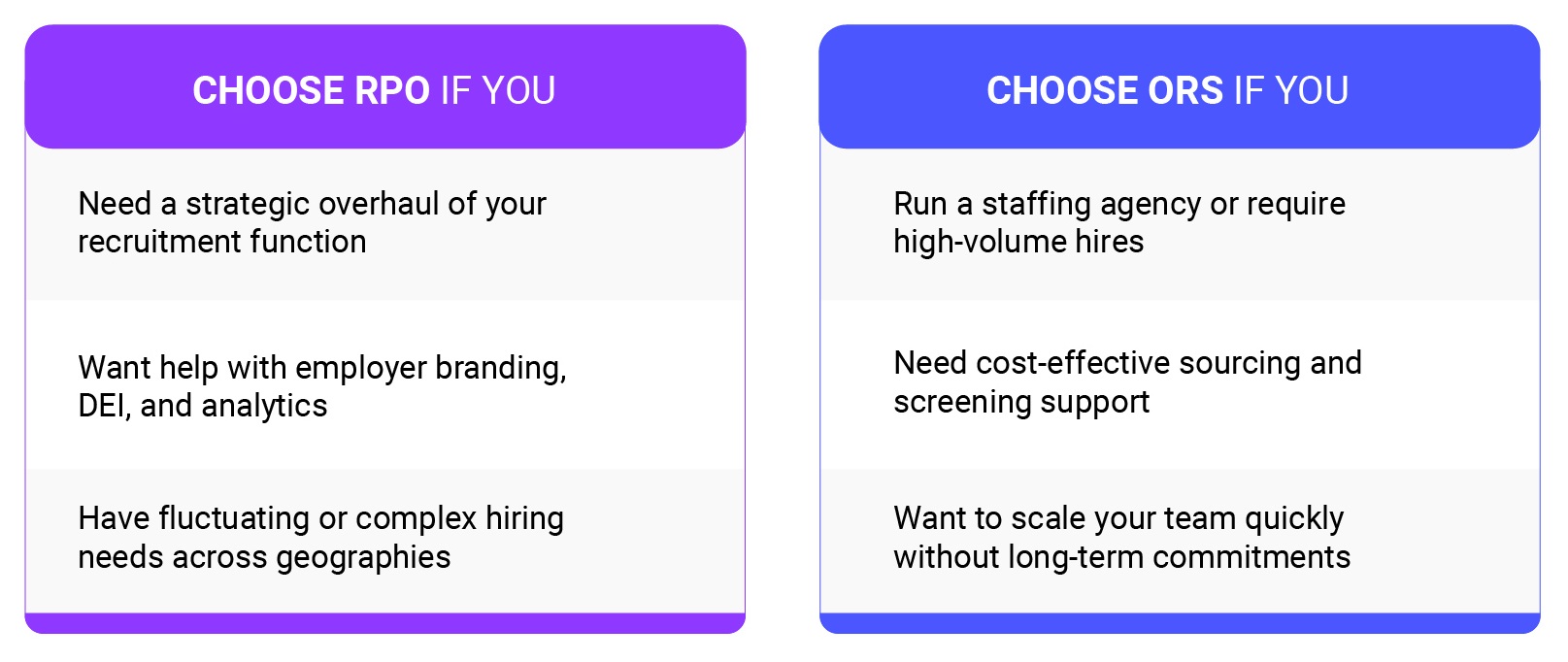
The Bottom Line: It’s Not One-Size-Fits-All
There’s no universal answer to the ORS vs. RPO debate. The best choice depends on your hiring needs, budget, team structure, and long-term goals. If your priority is transforming how you hire and engage talent, RPO is the way to go. If you need fast, cost-effective recruiting muscle, ORS is a solid bet.
What matters most is that you're intentional about your approach. Outsourcing shouldn’t feel like losing control, it should feel like gaining a partner that helps you hire better, faster, and smarter.
Let’s Build a Better Talent Strategy
At Exela HR Solutions, we understand that no two hiring challenges are the same. That’s why we offer both RPO and ORS solutions customized to meet your unique needs.
Whether you’re scaling up a tech team, launching in a new market, or filling roles at speed, we’ve got you covered. Our experts can help you assess your current processes, identify gaps, and recommend the best model to support your growth.
Ready to transform your recruitment game?
Let’s connect and explore how we can build your perfect hiring solution.




